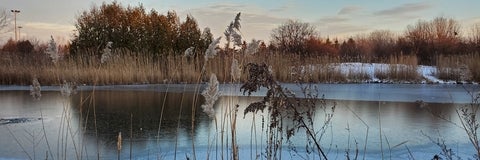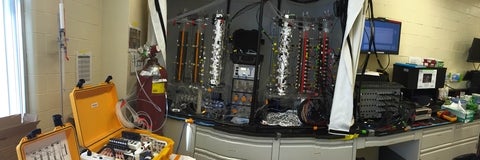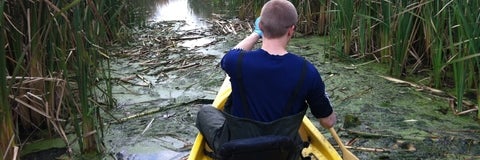Integrating Environmental Water Research Across Multi Scales and Disciplines
Water is our most precious natural resource. All human activities, from agriculture and industrial processes to domestic uses, depend on water of sufficient quantity and quality. This is also true for natural ecosystems. In contrast to highly visible water quantity stressors, such as flash floods and prolonged droughts, changes in water quality are often more gradual and more difficult to detect, and their cumulative impacts more difficult to predict and manage. Water quality deterioration, however, poses more pervasive and chronic risks to the economy, human health and the ecological life-support systems of the planet.
Water quality degradation is a global phenomenon. In Canada, for example, harmful and nuisance algal blooms are a persistent problem for many freshwater bodies, including the iconic Laurentian Great Lakes, while many of our First Nations communities still live under drinking water advisories. Globally, awareness is also growing that climate change adaptation must be an integral part of planning and implementing effective water management policies and practices.
For general inquires about the Ecohydrology Research Group, please email ecohydrology@uwaterloo.ca.
News
Fereidoun attends the CCA Conference and Annual Meeting
The 2025 Ontario Certified Crop Advisor (CCA) Conference and Annual Meeting took place January 14-15 in London, Ontario.
Ecohydrology research group student awarded NSERC Canada Graduate Scholarship
Current Ecohydrology research group student Katie Hettinga has been awarded an NSERC Canada Graduate Scholarship for her master’s research
ERG Christmas Party 2024
ERG group members gathered for our annual holiday party! Happy Holidays and Happy New Year!
Events
World Wetlands Day 2025
World Wetlands Day (WWD) is celebrated each year on February 2nd, which marks the day when the Convention on Wetlands was adopted in 1971 in Ramsar, Iran. The Convention is an international government agreement acknowledging the importance of wetlands and plays a central role in the wise use and conservation of these critical ecosystems. To learn more about the Convention, visit: www.ramsar.org





